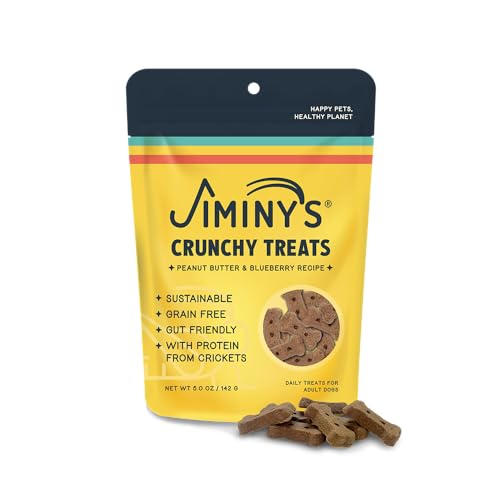
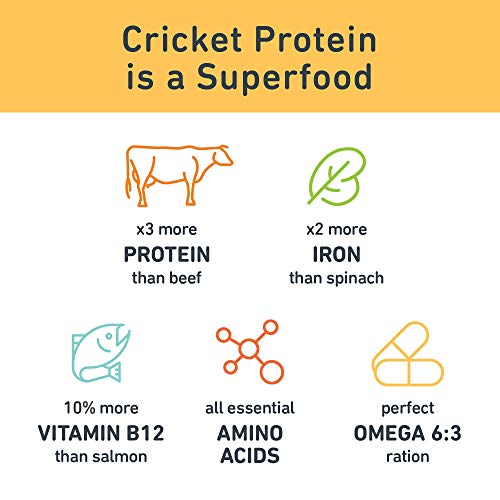
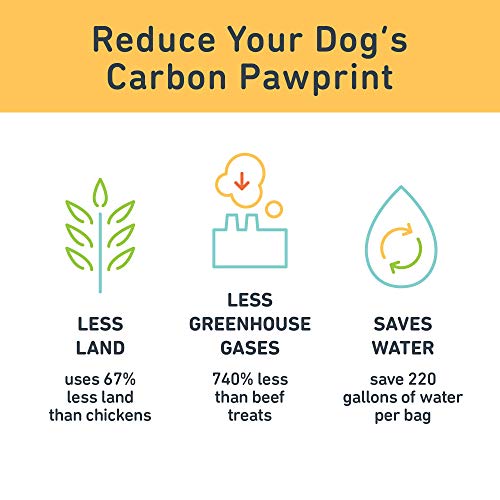
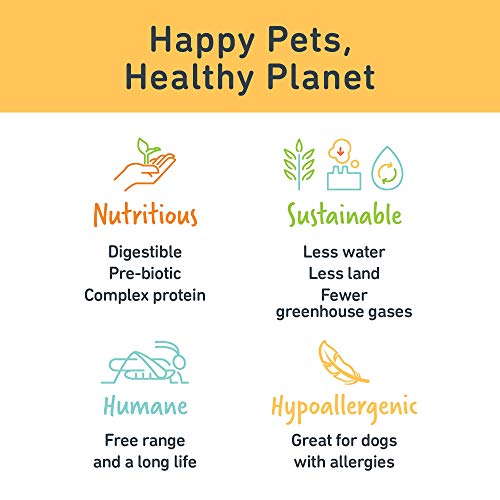
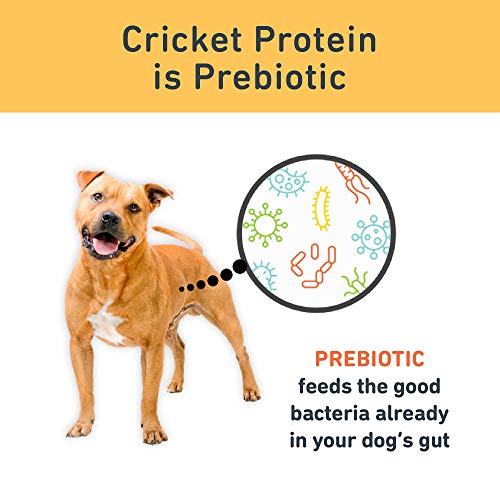
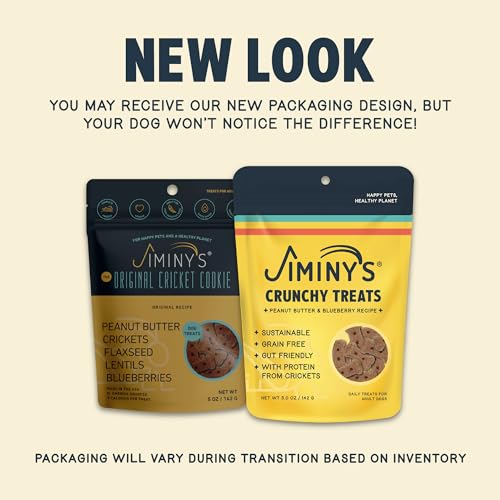
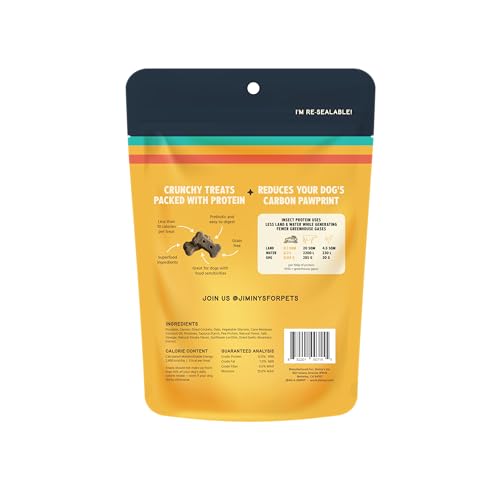
Jiminy's Dog Treats - Hypoallergenic Cricket Cookies, Peanut Butter & Blueberry - 5oz


Rosmarinus Officinalis (Rosemary) Leaf Extract
Medium RiskRosemary leaf extract is produced from the leaves of the Rosmarinus officinalis plant. It is commonly used in cosmetic formulations for its potential antioxidant properties and fragrance. The extract may also contribute to the preservation of products due to its antimicrobial characteristics.
Sustai Insights
Rosemary leaf extract offers functional benefits such as antioxidant and antimicrobial properties, which can enhance product stability and shelf-life. It is generally considered low risk for carcinogenicity and reproductive toxicity, but it carries a moderate potential for allergic reactions. Environmentally, it poses low risk with no significant pollutant or bioaccumulation concerns. Regulatory bodies have not placed significant restrictions on its use, although some verified products cannot contain certain concentrations. Overall, the ingredient's risk level is medium, necessitating careful usage practices to mitigate allergic responses.
Citric Acid
Medium RiskCitric acid is an alpha hydroxy acid used in personal care products primarily for its role as a pH adjuster and natural preservative. It occurs naturally in citrus fruits and is commonly utilized in various formulations for its chelating properties and mild exfoliation benefits.
Sustai Insights
Citric acid offers functional benefits as an effective preservative and pH stabilizer, contributing to product longevity and stability. It is biodegradable and derived from renewable sources. Health risks are low, with minimal concerns regarding carcinogenicity, allergies, and reproductive toxicity. However, moderate use restrictions exist due to potential irritation at high concentrations. Environmental risks are limited, as citric acid is not known to accumulate in ecosystems. Regulatory agencies have no significant advisories against its use. Overall, it is assessed as a medium-risk ingredient, with safe usage practices recommended and alternatives available.
Molasses
Low RiskMolasses is a viscous byproduct of sugar extraction from sugarcane or sugar beet. It is used primarily as a sweetener and flavoring agent in various food products. Its rich mineral content, including iron, calcium, and magnesium, contributes to its nutritional value.
Sustai Insights
Molasses serves as a natural sweetener and offers nutritional benefits, being a source of vitamins and minerals. Health risks are minimal, with low concerns regarding carcinogenicity, allergies, and reproductive toxicity. Environmentally, it poses low risks as it is not a pollutant or bioaccumulative. Regulatory bodies have not issued restrictions on its use. Overall, the risk level associated with molasses is considered low, suggesting it is safe for consumption in typical amounts.
Cocos Nucifera (Coconut) Oil
Low RiskCocos Nucifera (Coconut) Oil is derived from the kernels of the coconut palm. It is primarily used in cosmetic formulations for its emollient and moisturizing properties, making it suitable for skin and hair care products.
Sustai Insights
Coconut oil serves as an effective moisturizer and emollient, promoting skin hydration and softness. It is sustainably sourced and biodegradable. Health risks are minimal, with low concerns regarding carcinogenicity, allergens, and reproductive toxicity. Environmental impact is also low, as it does not contribute significantly to pollution or bioaccumulation. Regulatory bodies have not issued restrictions on its use. Overall, coconut oil presents a low risk for health and environmental concerns, making it a safe ingredient in cosmetic products.
Sea Salt
Low RiskSea salt is a mixture of inorganic salts derived primarily from the evaporation of seawater. It consists mainly of sodium chloride, with minor amounts of other minerals. Sea salt is commonly used as a seasoning and preservative in food products and may also have applications in cosmetics and personal care items.
Sustai Insights
Sea salt serves as an effective flavor enhancer and preservative, contributing to the taste and shelf-life of food products. It is generally considered safe with low risk for health concerns such as cancer, allergies, and reproductive toxicity. Environmental impact is minimal, as it does not contribute significantly to pollution or bioaccumulation. Regulatory bodies, including the FDA, currently do not impose restrictions on its use. Overall, the risk level associated with sea salt is low, making it a widely accepted ingredient with no significant adverse effects reported.
Linum Usitatissimum (Flax) Seed
Low RiskLinum usitatissimum, commonly known as flaxseed, is derived from the seeds of the flax plant. It is primarily used in cosmetics and personal care products for its moisturizing properties and as a source of omega-3 fatty acids, which can contribute to skin health.
Sustai Insights
Flaxseed offers functional benefits such as hydration and nourishment for the skin, with sustainability credentials due to its biodegradability and renewable sourcing. Health risks are minimal, with low concerns regarding carcinogenicity, allergies, and reproductive toxicity. Environmental impact is also low, with no significant pollutant potential. Regulatory bodies do not impose restrictions on its use. Overall, the ingredient is assessed to have a low-risk profile, making it a safe component in personal care formulations. Alternatives may include other plant-based oils that offer similar moisturizing effects.
Molasses
Low RiskMolasses is a viscous byproduct of sugar extraction from sugarcane or sugar beet. It is used primarily as a sweetener and flavoring agent in various food products. Its rich mineral content, including iron, calcium, and magnesium, contributes to its nutritional value.
Sustai Insights
Molasses serves as a natural sweetener and offers nutritional benefits, being a source of vitamins and minerals. Health risks are minimal, with low concerns regarding carcinogenicity, allergies, and reproductive toxicity. Environmentally, it poses low risks as it is not a pollutant or bioaccumulative. Regulatory bodies have not issued restrictions on its use. Overall, the risk level associated with molasses is considered low, suggesting it is safe for consumption in typical amounts.
Cocos Nucifera (Coconut) Oil
Low RiskCocos Nucifera (Coconut) Oil is derived from the kernels of the coconut palm. It is primarily used in cosmetic formulations for its emollient and moisturizing properties, making it suitable for skin and hair care products.
Sustai Insights
Coconut oil serves as an effective moisturizer and emollient, promoting skin hydration and softness. It is sustainably sourced and biodegradable. Health risks are minimal, with low concerns regarding carcinogenicity, allergens, and reproductive toxicity. Environmental impact is also low, as it does not contribute significantly to pollution or bioaccumulation. Regulatory bodies have not issued restrictions on its use. Overall, coconut oil presents a low risk for health and environmental concerns, making it a safe ingredient in cosmetic products.
Rosmarinus Officinalis (Rosemary) Leaf Extract
Medium RiskRosemary leaf extract is produced from the leaves of the Rosmarinus officinalis plant. It is commonly used in cosmetic formulations for its potential antioxidant properties and fragrance. The extract may also contribute to the preservation of products due to its antimicrobial characteristics.
Sustai Insights
Rosemary leaf extract offers functional benefits such as antioxidant and antimicrobial properties, which can enhance product stability and shelf-life. It is generally considered low risk for carcinogenicity and reproductive toxicity, but it carries a moderate potential for allergic reactions. Environmentally, it poses low risk with no significant pollutant or bioaccumulation concerns. Regulatory bodies have not placed significant restrictions on its use, although some verified products cannot contain certain concentrations. Overall, the ingredient's risk level is medium, necessitating careful usage practices to mitigate allergic responses.
Sea Salt
Low RiskSea salt is a mixture of inorganic salts derived primarily from the evaporation of seawater. It consists mainly of sodium chloride, with minor amounts of other minerals. Sea salt is commonly used as a seasoning and preservative in food products and may also have applications in cosmetics and personal care items.
Sustai Insights
Sea salt serves as an effective flavor enhancer and preservative, contributing to the taste and shelf-life of food products. It is generally considered safe with low risk for health concerns such as cancer, allergies, and reproductive toxicity. Environmental impact is minimal, as it does not contribute significantly to pollution or bioaccumulation. Regulatory bodies, including the FDA, currently do not impose restrictions on its use. Overall, the risk level associated with sea salt is low, making it a widely accepted ingredient with no significant adverse effects reported.
Linum Usitatissimum (Flax) Seed
Low RiskLinum usitatissimum, commonly known as flaxseed, is derived from the seeds of the flax plant. It is primarily used in cosmetics and personal care products for its moisturizing properties and as a source of omega-3 fatty acids, which can contribute to skin health.
Sustai Insights
Flaxseed offers functional benefits such as hydration and nourishment for the skin, with sustainability credentials due to its biodegradability and renewable sourcing. Health risks are minimal, with low concerns regarding carcinogenicity, allergies, and reproductive toxicity. Environmental impact is also low, with no significant pollutant potential. Regulatory bodies do not impose restrictions on its use. Overall, the ingredient is assessed to have a low-risk profile, making it a safe component in personal care formulations. Alternatives may include other plant-based oils that offer similar moisturizing effects.
Citric Acid
Medium RiskCitric acid is an alpha hydroxy acid used in personal care products primarily for its role as a pH adjuster and natural preservative. It occurs naturally in citrus fruits and is commonly utilized in various formulations for its chelating properties and mild exfoliation benefits.
Sustai Insights
Citric acid offers functional benefits as an effective preservative and pH stabilizer, contributing to product longevity and stability. It is biodegradable and derived from renewable sources. Health risks are low, with minimal concerns regarding carcinogenicity, allergies, and reproductive toxicity. However, moderate use restrictions exist due to potential irritation at high concentrations. Environmental risks are limited, as citric acid is not known to accumulate in ecosystems. Regulatory agencies have no significant advisories against its use. Overall, it is assessed as a medium-risk ingredient, with safe usage practices recommended and alternatives available.
Discover Jiminy's Original Cricket Cookie Dog Treat, a delicious blend of peanut butter and blueberry, perfect for the health-conscious pet owner. These hypoallergenic treats are crafted with cricket protein, making them easy to digest and ideal for dogs with allergies.
- Hypoallergenic Formula: Made with cricket protein, these treats avoid common allergens like beef, chicken, and soy, ensuring a safe option for sensitive dogs.
- Eco-Friendly Choice: By using insect protein, Jiminy's reduces the carbon pawprint, saving over 200 gallons of water per bag compared to traditional dog treats.
- Nutrient-Rich Ingredients: Featuring high-quality, recognizable ingredients such as peanut butter, flaxseed, and lentils, these treats offer a delightful taste and essential nutrients for your dog.
- Digestive Health Support: Cricket protein acts as a prebiotic, promoting a balanced gut microbiome, which supports overall digestive health.
- Versatile Use: Perfect for training rewards or casual treats, these cookies strengthen the bond between you and your furry friend while offering a nutritious snack.
Subscribe & Save with Sustai
- Best Price Guarantee: Always enjoy the lowest prices on sustainable home essentials.
- No Surprises: We’ll notify you before shipping. No hidden fees, ever.
- You’re in Charge: Change, pause, or cancel your subscription anytime with ease.
- Eco-Friendly Deliveries: Our grouped shipments mean less packaging and lower emissions.
Join us on a sustainable journey. Special offers for a limited time! Prices and promotions may change.
Recommended Products
Discover Jiminy's Original Cricket Cookie Dog Treat, a delicious blend of peanut butter and blueberry, perfect for the health-conscious pet owner. These hypoallergenic treats are crafted with cricket protein, making them easy to digest and ideal for dogs with allergies.
- Hypoallergenic Formula: Made with cricket protein, these treats avoid common allergens like beef, chicken, and soy, ensuring a safe option for sensitive dogs.
- Eco-Friendly Choice: By using insect protein, Jiminy's reduces the carbon pawprint, saving over 200 gallons of water per bag compared to traditional dog treats.
- Nutrient-Rich Ingredients: Featuring high-quality, recognizable ingredients such as peanut butter, flaxseed, and lentils, these treats offer a delightful taste and essential nutrients for your dog.
- Digestive Health Support: Cricket protein acts as a prebiotic, promoting a balanced gut microbiome, which supports overall digestive health.
- Versatile Use: Perfect for training rewards or casual treats, these cookies strengthen the bond between you and your furry friend while offering a nutritious snack.

You can have at most 2 Sustainable Steals products in your cart
Customer Reviews
Customers’ View
Customers appreciate the hypoallergenic nature and eco-friendly ingredients of Jiminy's Dog Treats, often highlighting the use of cricket protein as a sustainable protein source. Many reviews commend the treats' high protein content, noting that they are nutritious and appealing to dogs with allergies. The taste is generally well-received, with some customers mentioning their pets enjoy the flavor. Additionally, the treats are praised for their small size, making them excellent for training and rewarding dogs. While some customers express concerns about the value for money, overall feedback emphasizes the health benefits and sustainable attributes of the product, aligning with the values of eco-conscious consumers.
AI-generated from the text of customer reviewsThis product has no reviews yet.




